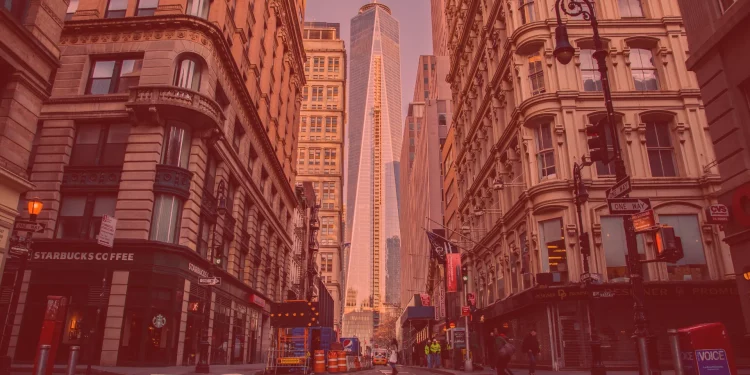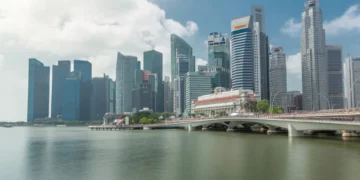Middle American cities are in trouble against the backdrop of the Covid-19 pandemic and it has been bothering economists and politicians alike. The American downtowns were sparkling with new constructions and growth in 2019. Today, four years later, work-from-home culture creates a plight for the once-powerful cities. Most of the concern has been focused on coastal cities like Seattle and San Francisco due to a sharp reduction in commuters due to remote work. The mid-western cities are also in trouble as they struggle to attract residents and visitors.
Struggling Cities
To get out of this disturbance, urban planners and economists advise that many mid-western cities need to get serious about improving their facilities and enhancing the living standards in their downtowns. The University of Toronto had been analysing the number of people physically present in the central business districts for the past few years through anonymized cell phone data. The individual-level data provides a much clearer picture of the downtown buoyancy before and after the pandemic. The conclusion of the study shows that five of the bottom 10 cities were in the Midwest: Indianapolis, St. Louis, Minneapolis, Cleveland, and Kansas City, Missouri.
According to the reports, nine of the thirteen Midwestern cities were in the bottom half of the rankings. The Mayor of Minneapolis, Jacob Frey stated that he expects his downtown workforce will peak at about 75% of its pre-pandemic numbers. A recent study also indicated that more than 20 million square feet of office space in the city is still vacant. The Midwest in general has struggled a lot in order to attract new residents and hold out the existing residents in recent years.
A net decline of more than 400,0000 residents is seen between a period of April 2020 and July 2022. And if they fall into the ‘Urban Doom Loop’ things could get much worse. For a large chunk of many city budgets, commercial property taxes are the highlight. So when the office vacancies increase, the revenue naturally decreases, and this force the municipal leaders to cut key programs. Reduced services and diminishing quality of life could push the residents to relocate, which leads to a ‘self-reinforcing exodus’. If serious changes are not brought in, these cities could ride themselves into oblivion.
What went wrong?
The reasons behind the current plight of the midwestern cities could be traced back to the choices they made years ago. During the early days of the 20th century, the midwestern cities flourished inviting families and workers from different parts. The Downtowns became a center for shopping and working. But during the 1950s many cities especially in the midwestern region relied mostly on a single industry for the growth of their economy.
Akron had the tire industry, Cleveland was home to the steel manufacturing industry, and Detriot had autos. To keep these businesses thriving, authorities focused solely on attracting businesses without considering the hardships of families. This mindset transformed the areas into metropolitan cities. All this while the working-class community was being ignored so they began to leave for better places. They went in search of places that provided them with a better quality of life. Many began to leave cities and settled in the suburbs.
The Doom Loop
From all this, we can see that the pandemic did not create the origins of downtown’s problems even if it contributed to it. The continuing and possible structural weakening of the productivity of the downtowns could become a recurring cycle: the doom loop. The increasing suburbanization and increasing remote work opportunities reduce the power of downtowns that they once used to enjoy.
Downtowns are very important to the regional economies as they contain the most intense cluster of jobs which comprises both higher-wage jobs and lower-wage jobs. Downtown activity centers concentrate more activity than regional activity centers by a factor ranging from a low of 1.4 in Birmingham, Ala. to a high of 27.5 in Chicago. Downtowns will remain the densest job centers in the relative regions and their sustenance matters to the whole economy.
However, it is not all bad news. Even if downtowns have suffered, the suburbs have seen to be prosperous. The suburbs were always focused on livability. In order for the downtown to survive, it needs to be more like the suburbs creating more livable conditions like affordable housing, a strong education system, and more investments in public transit.

















